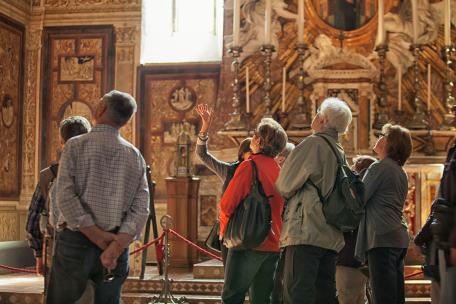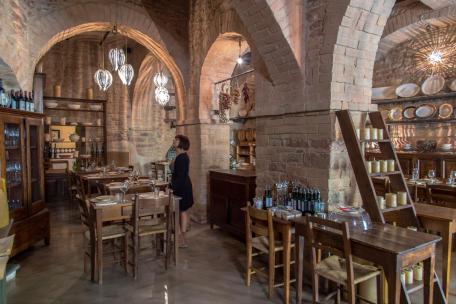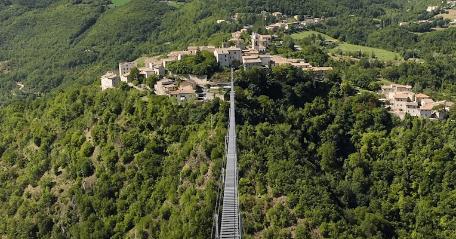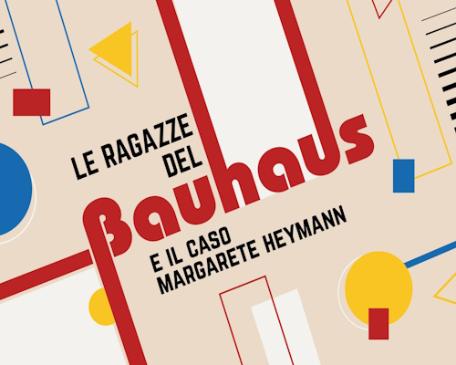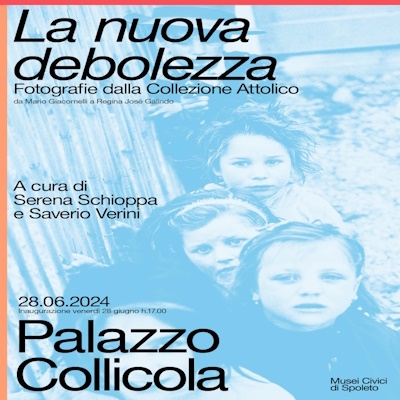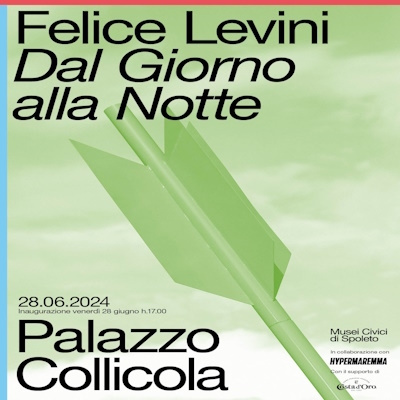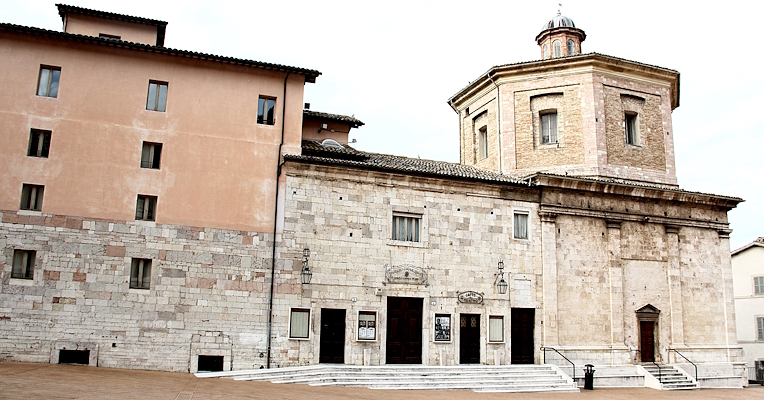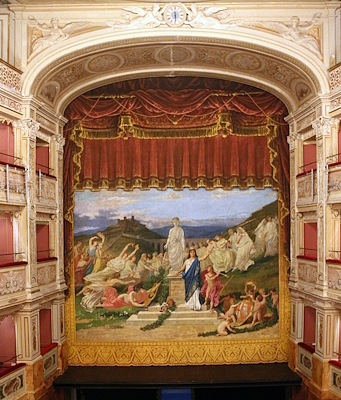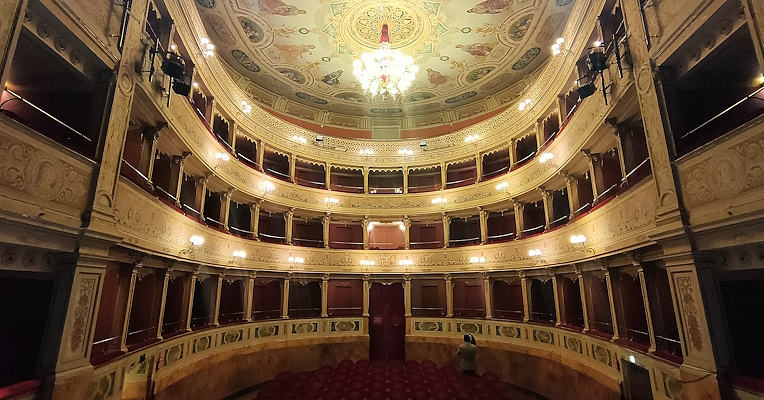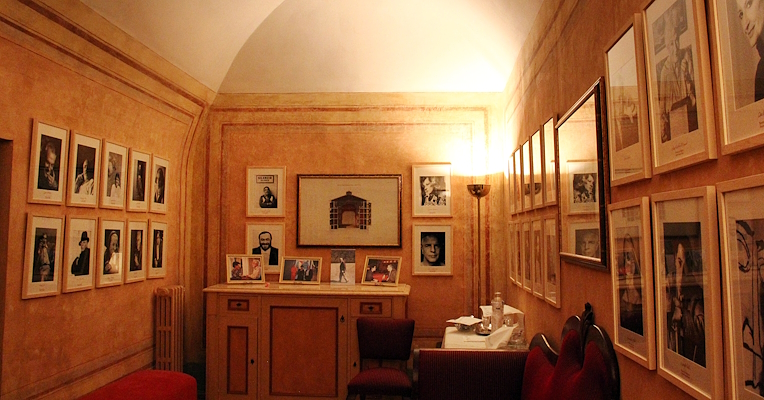Teatro Caio Melisso Spazio Carla Fendi
Caius (Gaius) Melissus, from Spoleto, was a Roman grammarian and poet, who from being a slave in the employ of Maecenas, was freed by him to later become Augustus' trusted librarian, and director of the public library in the portico of Octavia. A happy suggestion that correlates alternating human events of glory to the alternating vicissitudes of this theatre: first Teatro della Rosa, then Nobile Teatro, then Teatro Caio Melisso, to arrive, first with Gian Carlo Menotti and then with the Fendi Foundation, at being one of the pivotal venues of the Festival of Two Worlds and of the Spoleto theatre programme.
The ups and downs up to the beginnings of the Festival dei due Mondi
Spoleto's oldest theatre: in 1657, as the 'Teatro della Rosa', it hosted the performances of the Accademia degli Ottusi; ten years later it became the 'Noble Theatre of Spoleto'. It fell into disgrace twice: after its renovation in 1817, when the precious 18th-century decorations were also stolen, and in 1864, when the inauguration of the Teatro Nuovo marked its decline. Fortunately this was temporary. In 1880, after restoration work decided by the Municipality, it was inaugurated to become the Caio Melisso Theatre.
Domenico Bruschi, a painter from Perugia, decorated its ceiling with the scene "Apollo and Nine Muses" and the historical curtain depicting the Apotheosis of Caius Melissus.
We arrive, however, at 1957, again with mixed fortunes. On the arrival in Spoleto of Gian Carlo Menotti, or rather, his project for the Festival dei Due Mondi, the theatre is a cinema. It was then restored to be inaugurated, with Verdi's Machbeth, on 5 July 1958 in the first edition of the Festival.










